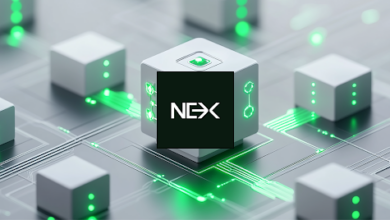Tornado Cash plaintiffs seek appeals after federal court losses
Plaintiffs in two cases are bringing their battle against the US Treasury Department to federal appellate courts
Despite recent losses in court, interested parties and crypto industry players are not giving up their fight against Tornado Cash sanctions.
Plaintiffs in two cases are bringing their battle against the US Treasury Department to federal appellate courts. Joseph Van Loon, along with five other self-identified “Ethereum blockchain users” sued the US Treasury Department, Secretary Janet Yellen, the Office of Foreign Asset Control (OFAC) and OFAC Director Andrea Gacki in September 2022.
They argued that the US government was out of line when it sanctioned crypto mixing service Tornado Cash. Tornado Cash was sanctioned in August 2022 under accusations the service facilitated the laundering of billions of dollars.
Read more: Tornado Cash sanctions expose potential DeFi Achilles’ heel
The mixing service has no place on the Specially Designated Nationals and Blocked Persons (SDN) list, the plaintiffs argue. The Treasury’s “unprecedented, overbroad action exceeds Defendants’ statutory authority, infringes on Plaintiffs’ constitutional rights, and threatens the ability of law-abiding Americans to engage freely and privately in financial transactions,” plaintiffs wrote in their September complaint.
A federal judge in Texas sided with the federal government in August, rejecting the argument that OFAC was acting outside its jurisdiction.
“Plaintiffs urge the Court to reject broad definition, claiming that OFAC is not entitled to deference when defining unambiguous statutory terms,” Judge Robert Pitman wrote in his opinion. “But ‘interest in property’ is hardly an unambiguous term.”
Loon and his fellow plaintiffs, with the support of crypto exchange Coinbase, filed an appeal in Fifth Circuit on Tuesday, stating that the Pitman’s original ruling does not address the fact that Tornado Cash, which they describe as a piece of computer code, is not a “foreign national or person,” therefore putting it outside OFAC’s authority.
“Whether the Department’s inclusion of immutable smart contracts on the SDN List is contrary to law and in excess of statutory authority because the purported Tornado Cash entity does not have an ‘interest’ in the immutable smart contracts under [the International Emergency Economic Powers Act] and the North Korea Act,” Loon’s appeal states.
Coin Center, Bankless co-founder David Hoffman and others filed a lawsuit against the same federal parties in October 2022.
Read more: Tornado Cash got wrecked, and we could have prevented it
Like in Loon’s case, a federal judge in Florida sided with the US government last month, prompting Coin Center and its co-plaintiffs to file an appeal in the Eleventh Circuit last week.
Coin Center cited similar concerns over the use of the International Emergency Economic Powers Act and the government’s treatment of Tornado Cash’s as a foreign person or national.
“Congress gave [the] Treasury the power to prohibit transactions involving certain “property” in which a foreign “national” or sanctioned ‘person’ has an interest,” Paul Grewal, chief legal officer at Coinbase, wrote on X Tuesday. Treasury’s action here stretches that authority and those words beyond any recognition.
Don’t miss the next big story – join our free daily newsletter .
- Coin Center
- Tornado Cash
Disclaimer: The content of this article solely reflects the author's opinion and does not represent the platform in any capacity. This article is not intended to serve as a reference for making investment decisions.
You may also like
GameStop just announced a $1.5 billion Bitcoin deal
Genius Group Ordered to Sell Bitcoin Holdings
Genius Group must sell 10 BTC due to a court order, slashing its crypto treasury and market cap significantly.Unexpected Setback for Genius GroupMarket Cap Falls Below Bitcoin ReservesConcerns About Stability and Transparency

Ethereum Price Sees 4 Straight Red Months
Ethereum has closed four red months in a row, but long-term holders remain hopeful for a rebound.Ethereum’s Tough Streak ContinuesHope on the Horizon for Ethereum Holders

Nexchain Emerges as April’s Best ICO: A New Era for Blockchain
Nexchain is committed to facilitating interoperability from one blockchain to the next through artificial intelligence, allowing for cross-chain communication and operational efficienciesConclusion

